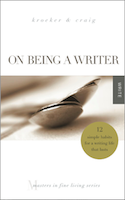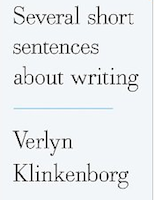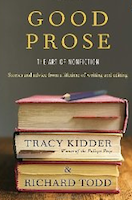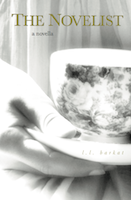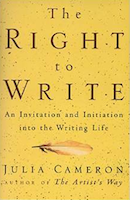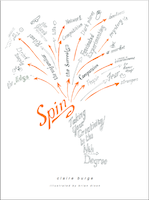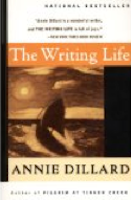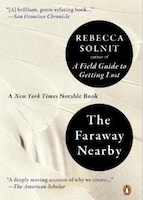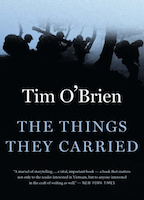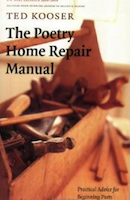Photo by Claire Burge. Used with permission.
Whether you're a teacher, an author, a budding writer, or someone who writes in secret for personal reasons, you've got writing wishes.
Here are 10 great books for your wish list, to stir your writing dreams or help make them a reality. (Bonus: includes suggestions for how to best approach reading each title!)
1. On Being a Writer: 12 Simple Habits for a Writing Life that Lasts, by Ann Kroeker and Charity Singleton Craig. This brand-new book is a must-have for career writers, whether seasoned or just starting out. Two editors with long-time careers have teamed up to share their wise, witty stories that will help you craft a lasting writing life--one that feels sustainable, while potentially putting money in your pocket (or discovery in your soul).
How to Read: Straight through, for the inspiring and helpful stories. Then use the prompts and discussion questions to teach a workshop (the book actually grew out of a writing workshop setting), guide a writing group, or embark on your own 12-week experience. Expect to find yourself and your best writing rhythms and approaches.
2. Several short sentences about writing, by Verlyn Klinkenborg. Here is a book that understands the ways we come to write poorly and encourages us to transcend this outcome through nitty-gritty ways of thinking, being, and acting. Structured as short sentences, it reads almost like a poem. (I am partial to poetry, so this is a plus, to my mind!)
How to Read: Daily, as a kind of meditative experience that can deliver short helpings of wisdom. Or, for a take-me-away poetic kind of experience, read in longer stretches when you're looking for some space.
3. Good Prose: The Art of Nonfiction, by Tracy Kidder and Richard Todd. For writers who've got their sights set on producing for outlets like The Atlantic, this is a must-read. First, it will set the standard you'll realize you need to reach, in terms of writing-complexity. Then it will help you understand the way such publications work (through giving you the mindset and process as told by Kidder and Todd).
How to Read: The book bogs down at about the halfway point, but this is not a problem. It is completely worth your time to read it halfway through, to get the viewpoint and stories of two top editors with long-time careers. Teachers can surely use the opening stories as part of a writing class.
4. The Novelist: A Novella, by L.L. Barkat. This book is a literary experience that delves into the issue of voice and volition in the writer. The opening scene finds the main character on the floor, sure that she might die of writer's block. Of course, as with most writers, the "block" is not her real problem, just a symptom of it. Layered with other writing stories like Mary Shelley's (through the lens of Frankenstein), Murasaki's (through The Tale of Genji) and Vargas Llosa's (through Letters to a Young Novelist), the main character is propelled to a journey of self-discovery that is accompanied by tea, travels into her past, and poetry.
How to Read: Straight through on a weekend when you're looking for a thoughtful diversion. Then go back and consider the many layers of myth, literary wit, and story wisdom. (One reviewer notes: "I have marked this book more than any other I have ever read. I have underlined, questioned, re-read and come back to certain paragraphs so many times over that I have actually broken the spine attempting to connect the dots between chapters. I eventually gave up and purchased magnetic page holders that allow me to mark two different sections at once.")
5. The Right to Write, by Julia Cameron. This writer is a veteran across genres, from fiction, to nonfiction, to screenwriting. Passionate, poetic, and persistent, Cameron will not stop until she helps you free your voice. Pulling from concepts she introduced in The Artist's Way, the book promises a path of disentanglement from the forces that sometimes keep us down as writers and artists. Includes simple, emotion-laden poetry and questions to ponder.
How to Read: Excellent for use in a writer's group that's looking for life-type inspiration as much as it's searching for writing advice. Use the guiding questions, or just discuss. There's plenty to engage, for those interested in taking a personal journey.
6. Spin: Taking Your Creativity to the Nth Degree, by Claire Burge. Not strictly a writing title, one teacher-reviewer swears she will never teach a writing class again without this book on board. Based on stories of South African life and later an entrepreneurial career seated in Dublin, this book is a lively writing of surprising creativity stories that are both poignant and sometimes quite amusing. Also, fully illustrated.
How to Read: Dip in to the stories day by day, for quick spurts of delight and vision. Do the writing prompts, or don't. The real take-away from this book is the vitality it will make you long for and then give you practical ways to pursue. (Includes organizers and intriguing productivity tips you probably haven't seen elsewhere.)
7. The Writing Life, by Annie Dillard. Now approaching the status of "classic," this book is worth re-reading and giving away. The deep insights, charged images, and strangely witty stories will challenge you to take your writing to the next level (or despair of ever getting there, but that is certainly not the intent). From wood-chopping to spontaneously-combusting typewriters, Dillard gives a picture of the writing life that you cannot easily forget, especially if you're interested in being a literary writer.
How to Read: With a fire extinguisher by your side.
8. The Faraway Nearby, by Rebecca Solnit. Memoir-based, this book will take you on a writer's journey through the life of Solnit, who struggles to come to terms with her mother's personality and progressive dementia. Images that will stay with you: the apricots on the bedroom floor, the maze, mirrors of all kinds. This is a hard book, but beautiful, that taps into primal feelings about stories and delves into their purposes, both communal and intensely personal.
How to Read: You cannot read this book quickly, due to the poetic complexity of the prose, the depth of thought, and the struggle embedded in its themes. Take it slowly, and don't worry about your pace. Bring it along on a retreat, or create a retreat of your own over a series of weekend reads. If you are not in the mood for rumination, exchange it for another title, without guilt.
9. The Things They Carried, by Tim O'Brien. Love a good war story? I don't. But this is one of my all-time favorite books. Poetic and dramatic (in the best sense of the word), this weaving and re-weaving of a war experience through ever-changing (but oddly converging) stories will uncover the true nature of Story and ask you to reconsider your own approaches to both reading and writing a tale. Because the book plays with the nature of truth, it's also an interesting companion to Marquez's One Hundred Years of Solitude or Esquivel's Like Water for Chocolate.
How to Read: A quick read, this book can benefit from being retraced and highlighted--especially the passages on truth and story. Gather these passages into a journal and ponder, or use them to jump start a class or writing group discussion.
10. The Poetry Home Repair Manual, by Ted Kooser. Designed for poets, this is absolutely one of the best books on how to write accessible poems that work. From thoughts about crafting better poem titles, to usable tips on how to choose the best details, to thoughts on rule-breaking, and much more, Kooser's advice is something you can immediately put into practice. Beyond that, his quiet humor will make you smile and his poem choices will help you see exactly what your task is if you're interested in making better poems of your own.
How to Read: With a pen in hand. (You're sure to almost immediately want to try his advice on for size.) Writer's groups could tackle a section together, as could classrooms, though you'll have to make your own way. (No specific prompts included.)
Oky, that's my list of great writer's books, amidst a market of many. What's your favorite writing title? Share with us in the comments.

